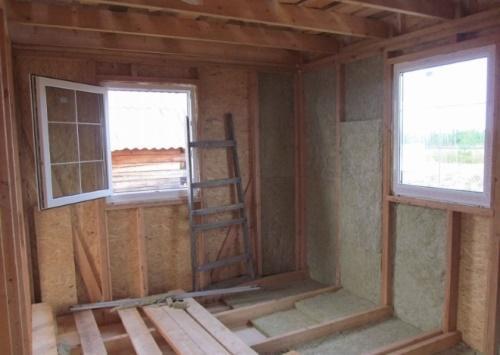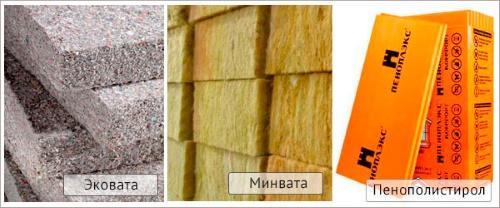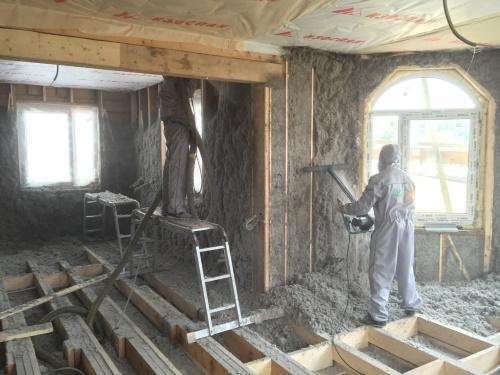Which insulation is better for a frame house: choose the most reliable
 It is not surprising that frame houses can be found more and more often, and not only in summer cottages. Their construction is in many ways superior to traditional stone dwellings. First of all, it saves material and time. Building a frame is much faster than building stone walls, and less material is needed. However, for the house to become habitable, it is necessary to “fill” its frame, that is, to protect it from low temperatures, moisture and noise. Therefore, it is important to know which insulation is best for a frame house. This is not the case when you can save money, because the walls should serve at least one generation of owners. What is the best and most reliable material?
It is not surprising that frame houses can be found more and more often, and not only in summer cottages. Their construction is in many ways superior to traditional stone dwellings. First of all, it saves material and time. Building a frame is much faster than building stone walls, and less material is needed. However, for the house to become habitable, it is necessary to “fill” its frame, that is, to protect it from low temperatures, moisture and noise. Therefore, it is important to know which insulation is best for a frame house. This is not the case when you can save money, because the walls should serve at least one generation of owners. What is the best and most reliable material?
Insulation properties

- Thermal conductivity. The lower its coefficient, the better the insulation will keep heat and lose it more slowly. The house will be warm in winter and cool in summer.
- Water absorption. The calculation is similar to the previous one: the lower the value, the better. Insulation that has absorbed moisture conducts more heat, moreover, it can simply freeze in winter.
- Shrinkage. Here you also need to choose insulation with minimal performance. After all, the house will stand for more than one year, and if the shrinkage is large, this will lead to a loss of heat.
- Water vapor permeability. Breathable material is a guarantee that mold will not start in the house.
- Security. First of all, this concerns the maximum resistance to fire, as well as the absence of the release of toxic substances.
Also, the insulation should be combined with the wood from which the frame is made, and have a service life not less than that of it.
What insulation is best for a frame house?
 Before buying insulating material, you need to carefully read its vapor permeability. It should not be lower than that of the frame material. For the construction of the frame, conifers are most often used.
Before buying insulating material, you need to carefully read its vapor permeability. It should not be lower than that of the frame material. For the construction of the frame, conifers are most often used.
In the building materials market you can find these types heaters:
- extruded polystyrene foam;
- polyurethane foam;
- expanded polystyrene;
- Styrofoam;
- expanded clay;
- ecowool;
- mineral wool.
Of these materials, the first 5 materials have the lowest vapor permeability. This means that it is better not to use them to insulate a frame house. But ecowool and mineral wool are ideal for these purposes.
Ecowool is ideal for wall and floor cladding. However, it should be borne in mind that special equipment is needed for its installation, and it costs decently. But the mineral wool can be laid on your own by purchasing basalt wool or glass wool.
I've already made myself a home. Council. It is possible to save external walls by storing ecowool, and to lay a basalt slab with a vapor barrier on the inside, and it is better to install a recuperator to install ventilation. I do this on Oleggal YouTube.Good luck to everyone in the construction.